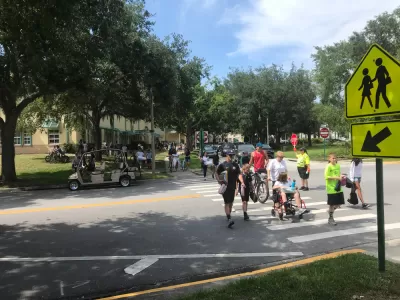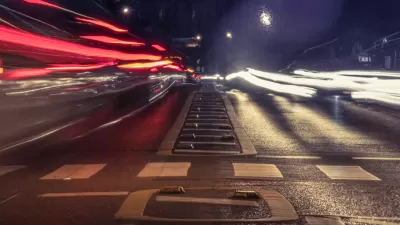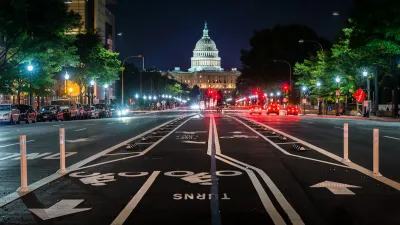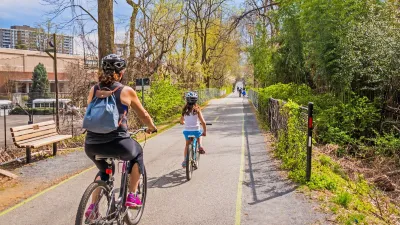While road funding still dominates the newly passed infrastructure bill, pedestrian advocates praise the bill's modest investment in active transportation and road safety.

Streetsblog's Kea Wilson describes the "modest but potentially powerful" policies that support active transportation in the new Infrastructure Investment and Jobs Act. Despite the high ratio of road to transit funding, the bill also includes support for programs that make walking and biking safer and more accessible, such as $1.44 billion a year for "transportation alternatives" and a requirement for states to allocate 15 percent of Highway Safety Improvement Program funds to protecting vulnerable road users.
Of course, those modest wins for active road users were dwarfed by investments into roadway infrastructure, which promises to widen roads for drivers at the same time as cities break ground on all those new mobility lanes. The trails community, in particularly, was disappointed by a new rule which will subject much of the country’s off-street biking and walking networks to the annual appropriations process, rather than guaranteeing its own dedicated fund.
The bill also includes a package of new mandates meant to reduce pedestrian deaths, such as "still-to-be-determined impaired driving technology on all new cars" and updated headlamp standards.
Wilson details the other provisions in the bill, writing that "[d]espite the disappointments in the latest infrastructure bill, advocates remain cautiously optimistic that it will at least lower America’s roadway death toll a bit — especially if the most important measures in its companion bill make their way through the gauntlet of intraparty negotiations."
FULL STORY: ‘Small Victories’ For Vulnerable Road Users In Infrastructure Bill

Planetizen Federal Action Tracker
A weekly monitor of how Trump’s orders and actions are impacting planners and planning in America.

Maui's Vacation Rental Debate Turns Ugly
Verbal attacks, misinformation campaigns and fistfights plague a high-stakes debate to convert thousands of vacation rentals into long-term housing.

Cuomo Is the Candidate of Both NIMBYs and Developers. What Gives?
In the New York City mayoral race, odd bedfellows align to preserve the housing status quo.

The Subversive Car-Free Guide to Trump's Great American Road Trip
Car-free ways to access Chicagoland’s best tourist attractions.

San Antonio and Austin are Fusing Into one Massive Megaregion
The region spanning the two central Texas cities is growing fast, posing challenges for local infrastructure and water supplies.

Charlottesville Temporarily Has No Zoning Code
A judge ordered the Virginia city to throw out its newly revised zoning code, leaving permitting for new development in legal limbo.
Urban Design for Planners 1: Software Tools
This six-course series explores essential urban design concepts using open source software and equips planners with the tools they need to participate fully in the urban design process.
Planning for Universal Design
Learn the tools for implementing Universal Design in planning regulations.
Heyer Gruel & Associates PA
JM Goldson LLC
Custer County Colorado
City of Camden Redevelopment Agency
City of Astoria
Transportation Research & Education Center (TREC) at Portland State University
Jefferson Parish Government
Camden Redevelopment Agency
City of Claremont





























